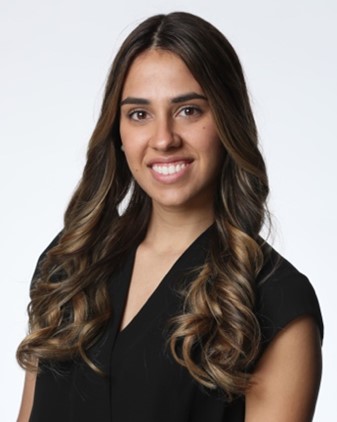 Research at UAB Heersink School of Medicine gives medical students hands-on experience in investigative medicine, helping deepen their understanding of and develop solutions for health care access and accessibility.
Research at UAB Heersink School of Medicine gives medical students hands-on experience in investigative medicine, helping deepen their understanding of and develop solutions for health care access and accessibility.
Fourth-year medical student Elizabeth Lopez has been working closely with Lesley Jackson, M.D., assistant professor in the Division of Clinical Immunology and Rheumatology, and Maria Danila, M.D., professor in the Division of Clinical Immunology and Rheumatology, on a research project focused on post-emergency department care in patients with acute gout flares.
“Our project looked at whether individuals with socioeconomic disadvantages are receiving less outpatient follow-up care after an emergency department (ED) visit for an acute gout flare and what barriers they may be facing that prevent them from following up,” Lopez explained.
Using a gout flare alert system developed by her mentors’ team, Lopez identified patients who had been seen in the ED for a gout flare. She then conducted a detailed chart review to confirm each diagnosis and determine whether the patient received outpatient follow-up care within six months of their ED visit. “Patients who did not follow up were contacted by phone to participate in interviews.”
One of the more difficult aspects of the study was the sheer volume of alerts and verifying which patients had a true acute flare. “It was challenging to search through hundreds of alerts to find those patients, as well as calling patients and obtaining enough participants,” Lopez said. “But in research, it's critical to identify the targeted population and to have the appropriate data set size.”
The study revealed some surprising patterns related to outpatient follow-up. The team found that married individuals were more likely to attend follow-up appointments, and the likelihood of follow-up doubled with every additional decade of age. On the other hand, patients with existing comorbidities were less likely to return for follow-up care.
Lopez highlighted that the primary aim of the research is to help health care providers recognize areas where follow-up care may be insufficient. By pinpointing specific gaps and barriers, the study offers valuable insights that can guide providers and public health officials in identifying patients at risk, improving services, and ultimately boosting follow-up rates while easing the strain on emergency departments.
Lopez presented her projects at several major conferences and poster exhibitions, including the Gout, Hyperuricemia, and Crystal-Associated Disease Network 2023 annual conference, where she was the second author, and the American College of Rheumatology 2024 annual conference, where she served as first author. The findings were also published in the Journal of Clinical Rheumatology.
Reflecting on the experience, Lopez credited her mentors for playing a key role in her development. “Conducting this project with the help of my mentors has grown and strengthened my research skills,” she said. “Having them there to provide advice and feedback as I navigated design, data collection, and statistical analysis was a tremendous advantage that I believe was critical as I was building my skills in biomedical research.”
Looking ahead, Lopez intends to remain active in research as she pursues a career in Family Medicine. Her long-term focus is on finding evidence-based, personalized strategies to enhance access to care, particularly for underserved and vulnerable patient groups.